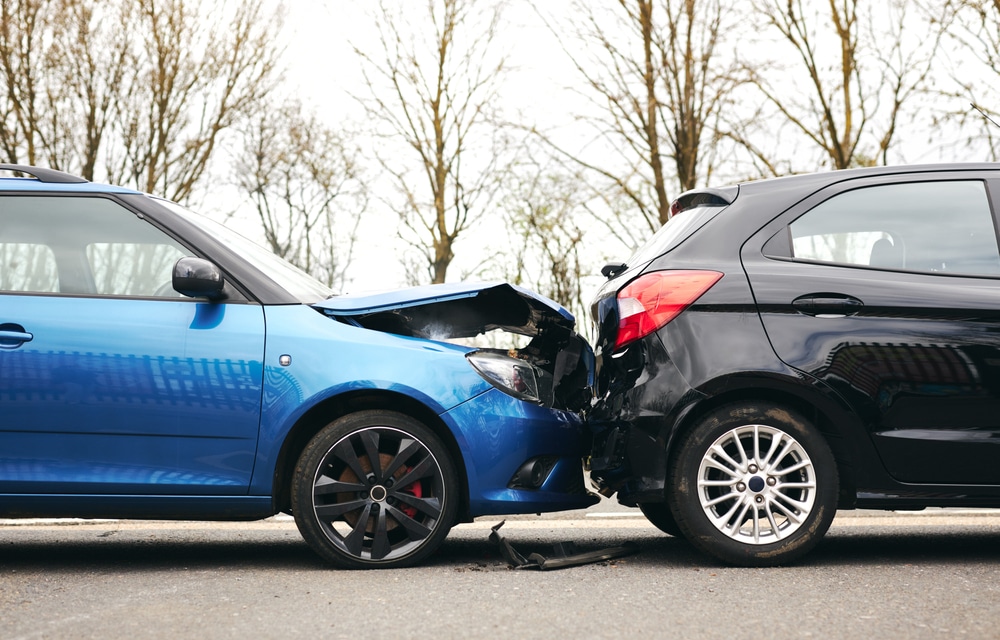
When people think about rear-end accidents, the common assumption is that the driver in the back is always to blame. While this is often the case, Illinois law does not make it an automatic rule. Each accident is evaluated based on the circumstances, the actions of both drivers, and whether there were other contributing factors. At The Law Offices of Robert T. Edens, P.C., we know from years of handling these cases that fault can be more complicated than it first appears.
Under Illinois law, liability in a car accident comes down to negligence — the failure to act as a reasonably careful driver would in the same situation. The Illinois Vehicle Code places specific duties on drivers to avoid collisions, including maintaining a safe following distance and keeping control of their vehicle. However, there are also situations where the lead driver’s actions, road conditions, or even third parties can shift or share the blame.
The primary statute often applied in rear-end accident cases is 625 ILCS 5/11-710(a):
“The driver of a motor vehicle shall not follow another vehicle more closely than is reasonable and prudent, having due regard for the speed of such vehicles and the traffic upon and the condition of the highway.”
This means that if a driver is tailgating or not leaving enough space to stop safely, they can be held liable for a crash. In most rear-end cases, proving the rear driver violated this statute is straightforward — but it’s not the end of the story.
Illinois follows a modified comparative negligence rule under 735 ILCS 5/2-1116:
“The plaintiff shall be barred from recovering damages if the plaintiff’s contributory fault is more than 50% of the proximate cause of the injury or damage for which recovery is sought.”
In practical terms, this means that if both drivers share fault, the injured party’s damages are reduced by their percentage of fault, and if they are more than 50% at fault, they recover nothing. For rear-end collisions, this allows for situations where the lead driver may have been brake-checking, changing lanes recklessly, or had non-functioning brake lights, which can reduce or eliminate the rear driver’s liability.
While uncommon, there are scenarios where the driver in front bears some or all of the responsibility for a rear-end collision:
In these cases, we work to gather witness statements, traffic camera footage, and accident reconstruction reports to show that our client was not solely responsible.
Rear-end collision claims often hinge on clear evidence. As attorneys, we gather:
In some cases, skid marks, vehicle damage patterns, and traffic light timing data are critical to proving fault.
If you are rear-ended while driving for work — for example, as a delivery driver or traveling between job sites — your case may involve both personal injury law and Illinois Workers’ Compensation law. Under 820 ILCS 305/1(b)(2), injuries “arising out of and in the course of employment” are compensable:
“Every employee … who sustains injuries arising out of and in the course of the employment … shall be entitled to compensation for such injuries.”
This allows you to pursue workers’ compensation benefits for medical care and lost wages while also pursuing a third-party personal injury claim against the at-fault driver.
Rear-end collision cases can seem simple, but quickly become complex once insurance companies get involved. Insurers often try to argue partial fault or downplay injuries, especially in lower-speed impacts. By contacting us immediately after your accident, we can preserve evidence, interview witnesses while memories are fresh, and protect you from making statements that could harm your case.
No. While the rear driver is often presumed to be at fault, this presumption can be challenged. If the lead driver acted negligently, such as by stopping suddenly without cause, having non-functioning brake lights, or reversing into another vehicle, they may share or bear all the liability.
If you were driving for work purposes at the time of the accident, you may be eligible for benefits under the Illinois Workers’ Compensation Act. This is separate from your personal injury claim and can provide coverage for medical expenses and lost wages, regardless of fault.
Yes. Illinois’ modified comparative negligence law allows fault to be shared. Your compensation will be reduced by your percentage of fault, and if you are more than 50% at fault, you cannot recover damages.
Yes. Many injuries from rear-end collisions, such as whiplash or soft tissue damage, can worsen over time. It’s important to seek immediate medical attention and consult an attorney before accepting any settlement.
Police reports, photographs, dashcam footage, witness statements, and accident reconstruction analysis are key. Vehicle damage patterns and skid marks can also provide important clues about speed, braking, and driver behavior before the crash.
In Illinois, the statute of limitations for personal injury claims is two years from the date of the accident. If your case involves a wrongful death, the same two-year limit applies from the date of death.
If the at-fault driver is uninsured or underinsured, you may be able to recover damages through your own uninsured/underinsured motorist coverage. This coverage is required in Illinois under 215 ILCS 5/143a.
If you’ve been involved in a rear-end collision in Illinois, don’t assume fault is automatic or that the insurance company will treat you fairly. At The Law Offices of Robert T. Edens, P.C., we investigate every detail to protect your rights and pursue the compensation you deserve.
Contact our Antioch auto accident lawyer at The Law Offices of Robert T. Edens, P.C. today at 847-395-2200 to schedule your free consultation. We represent clients from our Antioch Office at 392 Lake St., Antioch, IL 60002, our Waukegan Office at 325 Washington St., Waukegan, IL 60085, and our Woodstock Office at 1212 North Seminary Unit 1, Woodstock, IL 60098, serving clients throughout the entire state of Illinois.